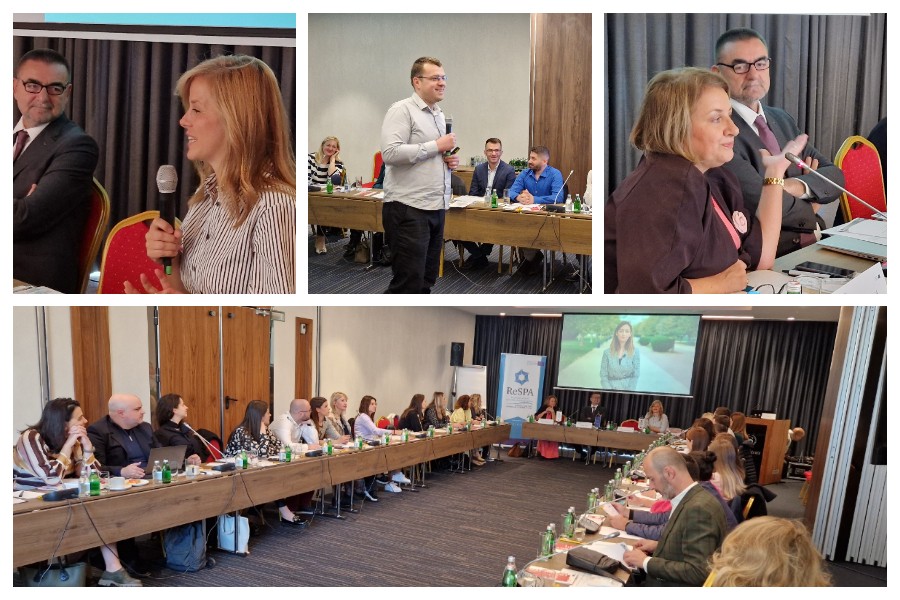
Regional Academy on Evidence-based Policymaking Process: Long-term flagship initiative to empower civil servants and make this complex work more efficient and effective
Established as a new and robust mechanism for enhancing policy-making in the Western Balkans public administrations and making them more efficient and effective, the Academy will focus on
- Cooperation with national governmental authorities and academic communities;
- Stronger involvement of national host institutions
- Longer and more comprehensive plan and learning programme
- Highly participatory involvement of participants
ReSPA Director Maja Handjiska-Trendafilova, at the opening, emphasised that “leveraging the rich regional knowledge, practices and modules, but also getting the EU and global insights and building the strength of teams and institutions dealing with policy-making” inspired ReSPA team in establishing the Academy. Trendafilova also underlined the extremely valuable academic perspective of the Academy and invited participants and ReSPA community to “learn, share, challenge and grow together” on the path to shaping the complex policy-making process into more efficient and effective.
Apart from strengthening the capacity of civil servants dealing with evidence-based planning with innovative methods and tools, the Academy also focuses on harmonising approaches in policy planning throughout the Western Balkan region, on better understanding common problems, improve the definition of solutions and intense preparation for the EU integration.
In the 1st Module, Jasna Atanasijević, from the University of Novi Sad, merged theory and practices and presented the main elements and segments of different phases of the policy cycle, starting from Agenda setting, then through the Formulation, Decision making, Implementation (and monitoring), to the Evaluation & policy learning.
Marijana Batak from Public Policy Secretariat explained the Law on Planning System introduced the direct exchange of practices and experiences in evidence-based policymaking in Serbia, while Ognjen Bogdanović and Jelena Todorović described the utilisation of Regulatory Impact Assessment (RIA) in Serbia and the role of PPS.
Zorana Lužanin and Andreja Tepavčević, from the University of Novi Sad, presented the role of data and statistics in public policies.
On the third day, Mr Igor Mirović, President of the Government of Vojvodina, initiated a discussion and explained the main principles of planning and implementation of public policies in Vojvodina and novelties in the decision-making process introduced in the last six years. Mirović also provided interesting examples of successful policies initiated and developed in Vojvodina. Svetlana Aksentijević, from Public Policy Secretariat in Serbia, provided a lecture on the models for the utilisation of impact indicators of public policies in Serbia. Participants examined how to communicate the problem - solutions relations in various fields of public policies.
The first module of the Academy was finalised with the presentation of Sanja Mešanović, deputy director of the Pubic Policy Secretariat, who explained the interrelations among public policies and performance management in the Government of Serbia through the concrete example of the Action Plan for the Implementation of Government Programs.
After four intensive working days of the first module of the Academy, participants provided their comments and feedback on the various components of this module and identified concrete topics to be taken into consideration for the next one which will be held in Montenegro



